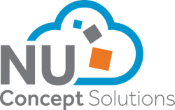NU Concept Blogs

Five Tips for Starting a Career in Cloud Computing
Cloud professionals are in high demand. If you're interested in a career in cloud computing, here's what you can do...
Cloud professionals are in high demand. Last year, Gartner published a report estimating that global end-user spending on public cloud services this year will reach $600 billion.
The cloud enables businesses to tap into a network of remote servers to store, manage, and process data rather than relying on local servers. With its cost advantages, flexibility, and scalability, cloud computing is one of the hottest trends in the IT industry.
As reliance on remote access continues to grow, so does the need for talented IT experts with cloud computing skills. Whether you already work in IT and want to shift into a cloud-focused career, or are a newbie to the tech industry, there are things you can do to move into this field.
If you're interested in a career in cloud computing, here are five tips for getting started:
- Education and training
To embark on a cloud computing career, candidates should have a strong foundation in computer science or a related field and some experience with cloud technologies. Many companies offer internships in cloud computing, which can provide valuable hands-on experience and help you make connections in the industry.
When it comes to IT roles, some companies don't need higher education. Those with good soft skills who can demonstrate the ability to learn and fulfil the job requirements may secure an entry-level position. Entry-level roles such as cloud engineer or developer can provide a foundation for the skills needed to work with cloud technologies. - Get Certified
Cloud certification shows employers and clients that you understand what being a cloud consultant involves, and have the knowledge and skills needed for your career.
You can learn the fundamentals of cloud computing through entry-level courses offered by cloud providers. These courses often include hands-on labs where you can practice using their respective consoles and tools.
Select a programme that enables you to gain hands-on experience with what you’re learning. Google, Microsoft, and Amazon all offer certifications that impart the knowledge and skill development required for handling different cloud technologies.
- The Amazon Web Services (AWS) Solutions Architect - Associate certification tests your ability to deploy, manage, and use various AWS services.
- The Microsoft Certified: Azure Fundamentals certification proves your knowledge of cloud computing concepts, models, and services.
- The Google Associate Cloud Engineer certification is another option. - Learn a programming language
To take full advantage of cloud computing, it is essential to have at least one programming language. Python is one of the most popular programming languages for cloud computing. It is easy to learn and has a range of applications.
Other languages include:
- AngularJS is a popular choice for developing cloud-based applications. This JavaScript framework makes it easy to create interactive web applications.
- Known for its stability and security. Go is another popular language for developing cloud-based applications.
- Java is a versatile language used for developing cloud-based applications. - Experience and portfolio building
Nothing beats practical experience. And sometimes it is difficult to get experience without experience! If you're beginning to explore your options, sign up for an account with a cloud server, such as AWS or Azure, and experiment to understand the technology. You can start by working on personal cloud projects, such as building a website or deploying a cloud application on a public cloud platform like AWS, Google Cloud, or Azure.
Consider ways to gain practical experience; this could include taking an internship, participating in hackathons, or volunteering for a cloud project for a charity.
If you're already working in the IT field, see if you can get involved in more cloud-based projects to consolidate your existing cloud-computing skills and develop new ones.
Once you have a few projects under your belt, put together a site to serve as your portfolio. Include links to your cloud projects and a summary of your education and experience. If you have testimonials from clients, include those too. - Update your profile
Tech employers no longer stick to the CV when analysing a candidate’s capabilities and verifying their experience. As LinkedIn plays a role in hiring decisions, ensure that your profile showcases your professional achievements and milestones.
Update your profile with information on completed projects, as well as current and upcoming ones. Go into the details of the projects, including the challenges you encountered and overcame. Mention your project niche and describe the project you’re currently working on or any new work you’re planning to take on. By doing so, you’re giving employers all the details they need to decide whether to offer you a cloud consultant role.
As a cloud professional looking to make your mark in this industry, working with a reliable cloud recruitment agency can help connect you with the best cloud roles in the UK and beyond. If you’re looking to start or enhance your cloud computing career, register your details with us today or email
